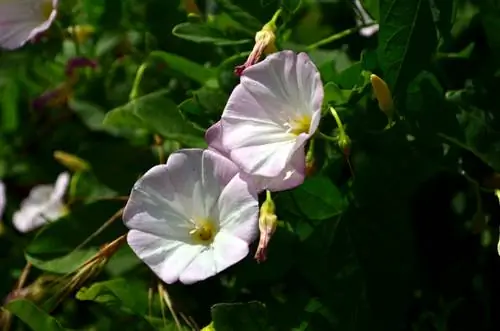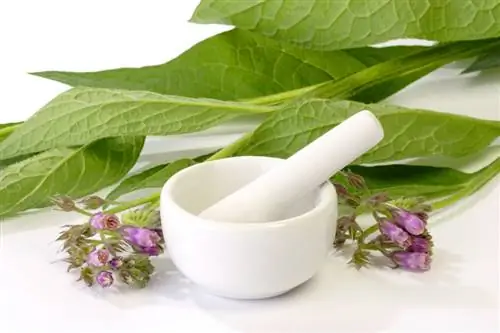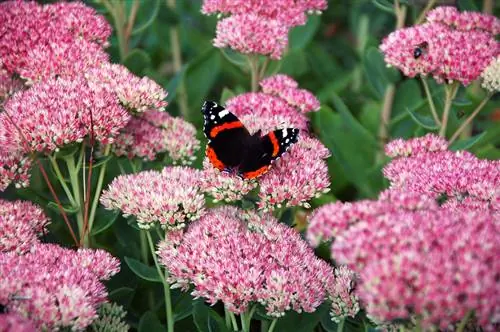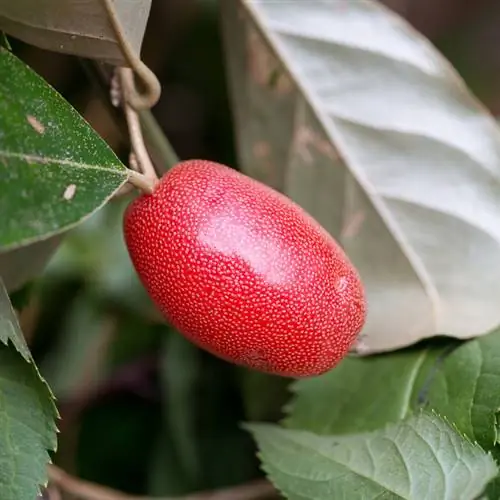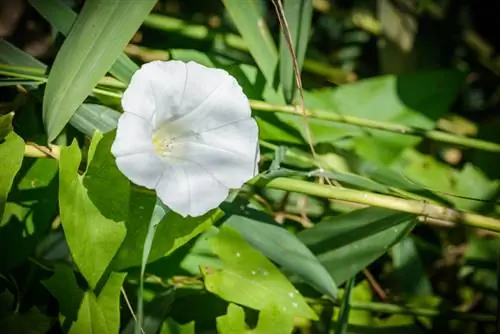- Author admin leonars@hobbygardeners.com.
- Public 2023-12-16 16:46.
- Last modified 2025-01-23 11:20.
Fence bindweed has been considered a medicinal plant for centuries. However, since the climbing plant is poisonous, it is hardly used in natural medicine. Symptoms of poisoning cannot be ruled out when consuming the flowers or a preparation made from willow tea.
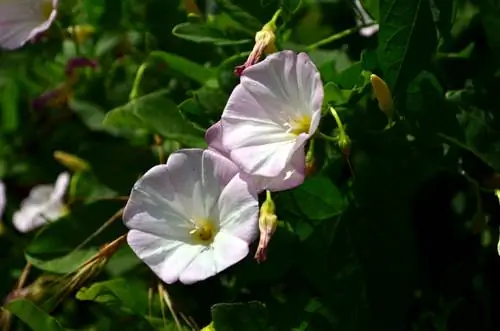
Is the morning glory a poisonous plant?
Fence bindweeds are slightly poisonous and contain substances such as tannins, tannic acid, tannins and glycosides, which can cause mild poisoning. The toxicity affects all parts of the plant such as leaves, flowers and roots.
Wingsweed is slightly poisonous
Fence morning glories contain a number of ingredients, some of which can cause mild poisoning. Even if the consequences are usually not serious, its use as a medicinal plant is not recommended.
Among other things, the willow contains the following ingredients:
- tannin
- tannic acid,
- Tannins
- Glycosides
- Tannins
All parts of the morning glory plant are poisonous: leaves, flowers and roots.
Fence bindweed in naturopathy
Since the morning glory can hardly be dosed correctly, it is almost never used in natural medicine. At most, tinctures are recommended that are said to be effective for inflammation.
Tip
Even if it is described more often: morning glory is not an edible plant. Because of the toxic substances it contains, hallucinogenic effects can occur.

